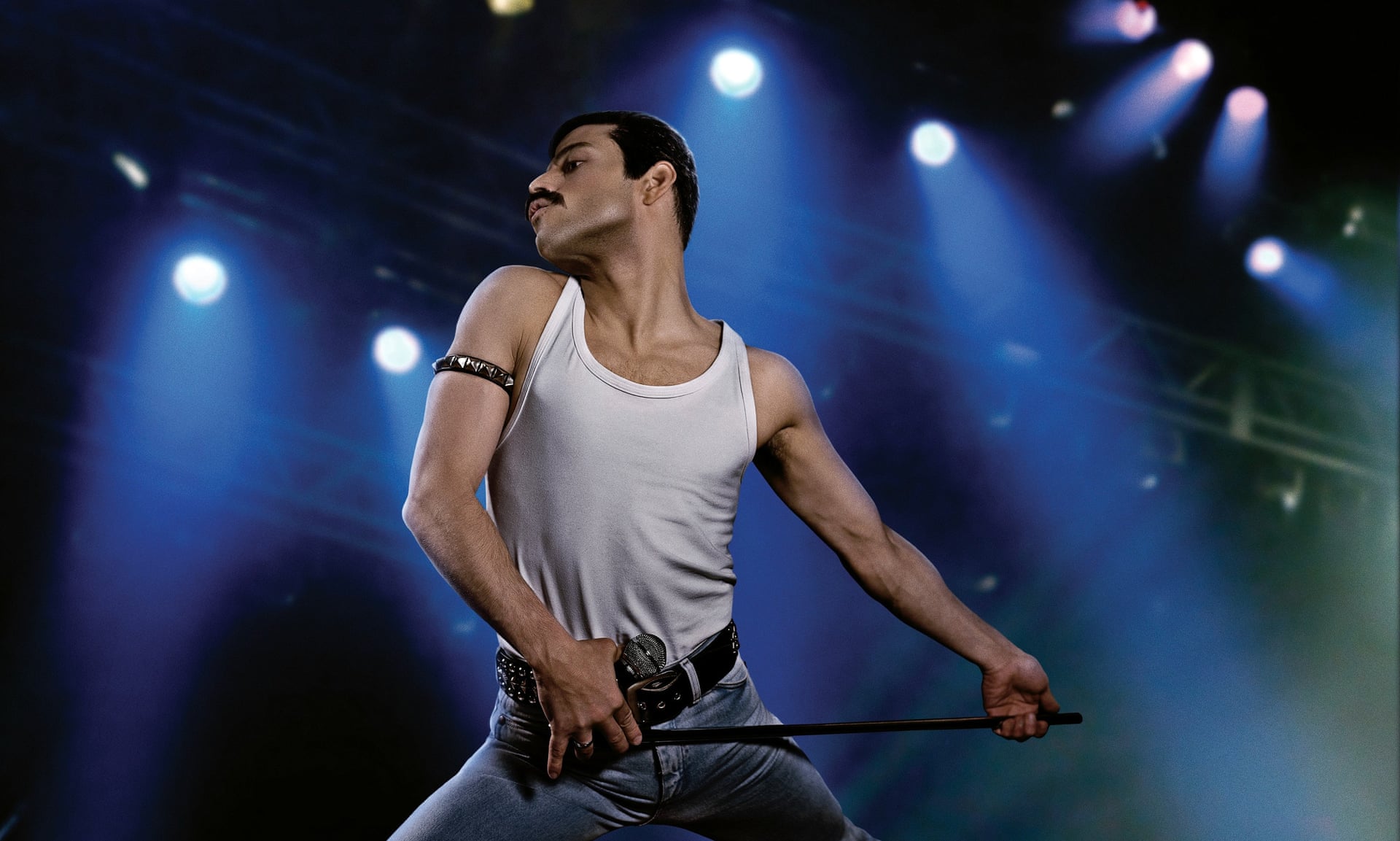 |
| Photograph: Allstar/New Regency Pictures |
While most of my friends who have seen it loved it too, I've seen some bad reviews - mostly people complaining about the inaccuracy of the timelines, a bit of hokeyness regarding the 'tour date montage' (agreed), but I don't let the reviews of others get in the way of my enjoyment.
However, there was an 'open letter' recently on the CBC site, written by someone who not only didn't like it, but had concerns. I felt like I wanted to address it.
The open letter, as written by Peter Knegt, states "The Freddie Mercury biopic isn't just inaccurate — its demonization of his sexuality is actively harmful."
Yes, a great amount of artistic license was taken in the timelines of things. I didn’t expect perfect accuracy. Is it a masterpiece of filmmaking? Nah. It amalgamates some real-life people into a single fictional character, fudges the stated reasons for decisions a bit, rewrites how certain people came into and out of the picture - but it's a fictionalized account, right?
But the author's worry is that straight people will take away from the film the messages "If you're queer, you will hate yourself," "If you're promiscuous, you deserve to get AIDS," and "You're nothing without your "straight family"."
And I get that - as much as I can, not being a gay man (I recognize I cannot speak from the experiences the author has). There's a concern about the impression it gives. But speaking as a straight woman (the only way I can, after all), I didn't take any of those messages away from this movie.
To me, it was a tale of what may have happened to a massively talented, misunderstood young man, who was loved by his family and friends, but was driven to excess when he dove deep into his rock-star lifestyle and newly-discovered sexuality and was given everything he thought he wanted. The author describes Mercury's character as "deeply self-loathing" and I just don't see that - I see uncertainty, sure, but that's something everyone goes through.
In the scene where he was at the New York bar with Prenter, I didn't think "every single patron has a vacant, satanic look on their face." The author says we are meant to see Prenter as "Chief among the evil queers" but I saw him as a clinging yes-man with an obsession and need for control, and I'm afraid they come in a wide variety.
From my perspective watching the film (and, again, I realize this was dramatized), Mercury was not sure who he was at first, coming from a strongly traditional background with no guidance or role models for how to accept himself, and when he started to realize how different from that norm he was, he ran towards the newness of it, all in.
We’ve all done that in our lives at some point, only to back off when we realize that maybe our lives don’t have to be 100% defined by this one thing. And I saw him realizing that his being bi (no, I didn’t believe Mary’s conclusion at that point, and I think the author had a point about that) wasn’t the defining characteristic of his life, that he was more than a label. He didn't need to be completely immersed in an extravagant lifestyle to find happiness in his success, he didn't need someone to just give him what he wanted with no questions - he needed people who would push back and help him be his true self, which was a mixture of many things, including his sexuality.
I think the author has injected their own life into the movie - and I don’t fault that, as I too have injected my own experiences into it, so I see it through a filter of my own life. I believe that’s what a good movie does, anyway - speaks to the viewer on a personal, relatable level. I don't share the life experiences of the author, so I can’t see it the way they did.
Was it a 100% accurate depiction of Freddie and Queen? Of course not. But it was beautiful and I went twice.
No comments:
Post a Comment
I seem to get a lot of spam from anonymous messages - for that reason, I moderate comments. If it isn’t spam I approve comments pretty quickly.